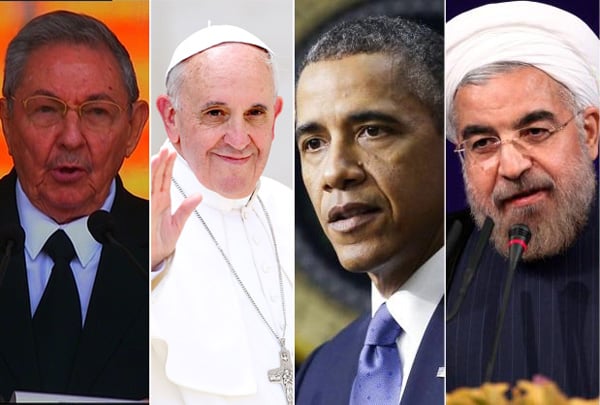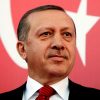
In the last stretch of his second and final term, Barack Obama is coming out of the closet as an activist, using his presidential prerogatives. First has come the regularisation of nearly 5 million immigrants, then a push forwards in the negotiations with Teheran –which have gone beyond the merely nuclear because after all they are also about Iran’s place in the region and the world– and, last week, after months of secret negotiations, we have finally seen some decisive steps towards the normalisation of relations with Cuba. Among other promises that remain to be kept is his pledge to close, even if it is simply by emptying it out, the prison in Guantanamo (located in Cuba, by the way). This is all part of building up his legacy.
Perhaps the most significant change in the normalisation process, and possibly in future relations with Cuba and Iran, is having given up in the demand for a regime change, at least directly and as a precondition. Transformation, the new mantra, can now come through engagement, in the case of Cuba and Iran, through a ‘supply shock’ and through human mobility as a result of the lifting of sanctions. It is a significant turnaround for the US, and far removed from the convictions of several of Obama’s predecessors. US policy towards Cuba was absurd and, as the President acknowledged, had been a complete failure. In Iran’s case, the pursuit of de-nuclearisation through regime change has also failed. The President’s new way forward is reminiscent of the Wandel durch Annäherung, or change through rapprochement, promoted by the German Social Democrats in their relations with East Germany, which in any case was not very successful until the Communist regime itself collapsed.
However, as regards Cuba and Iran, Obama faces a Congress whose two chambers are now under Republican control, and many Republicans disagree with the President’s decisions and want even harsher sanctions against Iran. The Executive can do much, but it is Congress that ultimately has the power to lift the embargo on Cuba and change legislation such as the Helms-Burton law, which are the obstacles to normalisation. It is in Congress’s power to block the funds to open a new embassy and indeed to refuse to confirm a future ambassador. Marco Rubio, a son of the Cuban diaspora and a Senator for Florida –where most Cuban exiles reside and amongst whom there is a new generation more in favour unfreezing relations– has been highly critical of the move. Even among the Democrat there are dissenting voices, such as that of Senator Robert Menéndez, who is chairman of the powerful Foreign Relations Committee.
The US administration was well aware of what was happening in Cuba through its Interests Section, a huge building in Havana technically under the aegis of the Swiss Embassy, and through the Cuban exile community. This is not the case with Iran, a country in which the US has had no representation –or even diplomatic relations– since 1979. Of course, having recourse to direct diplomatic information is of great importance.
In Cuba’s case, the mediation of Canada and the Vatican –or Pope Francis, since the Roman Catholic Church is still an institution to be reckoned with there– has been vital. But what of Latin America? And Spain? They can certainly contribute. Spain’s role, especially after having corrected the course of the previous PP government’s policy towards Cuba, should aim –aside from dwelling on bilateral issues– to speed up the normalisation of relations between Cuba and the EU through a cooperation agreement. Normalised relations between Washington and Havana will make life easier for Spanish companies seeking to do business in both the US and Cuba, as they have so far faced difficult hurdles on account of the US embargo. April’s Summit of the Americas in Panama will be more useful and complete if Cuba decides to attend. It can open up a new stage in a more normalised western hemisphere, where there still remains the issue of Venezuela, about which Cuba has much to say and do.
Obama has proved that he is not resigned to play the role of lame duck and that he still wants to show a display of leadership. He is maintaining a normal –albeit competitive– relationship with China, while Russia remains beyond his grasp, despite his efforts to the contrary. It is certainly true that the complex war being waged against the Islamic State is nothing to do with normalisation, and that he will not be able to end it since it is a long-term problem that began with a poorly thought-out invasion and an inadequately terminated war in Iraq. Meanwhile, Afghanistan will continue to be a headache if he wishes to prevent the Taliban’s return. In any case, his Grand Agenda will require the cooperation of a Congress that he does not control and in which there is a serious resistance to compromises with either Cuba or Iran. Others before him have succeeded in similar situations, although this time the Republicans have become more radical. They remain in a regime-change mood.


